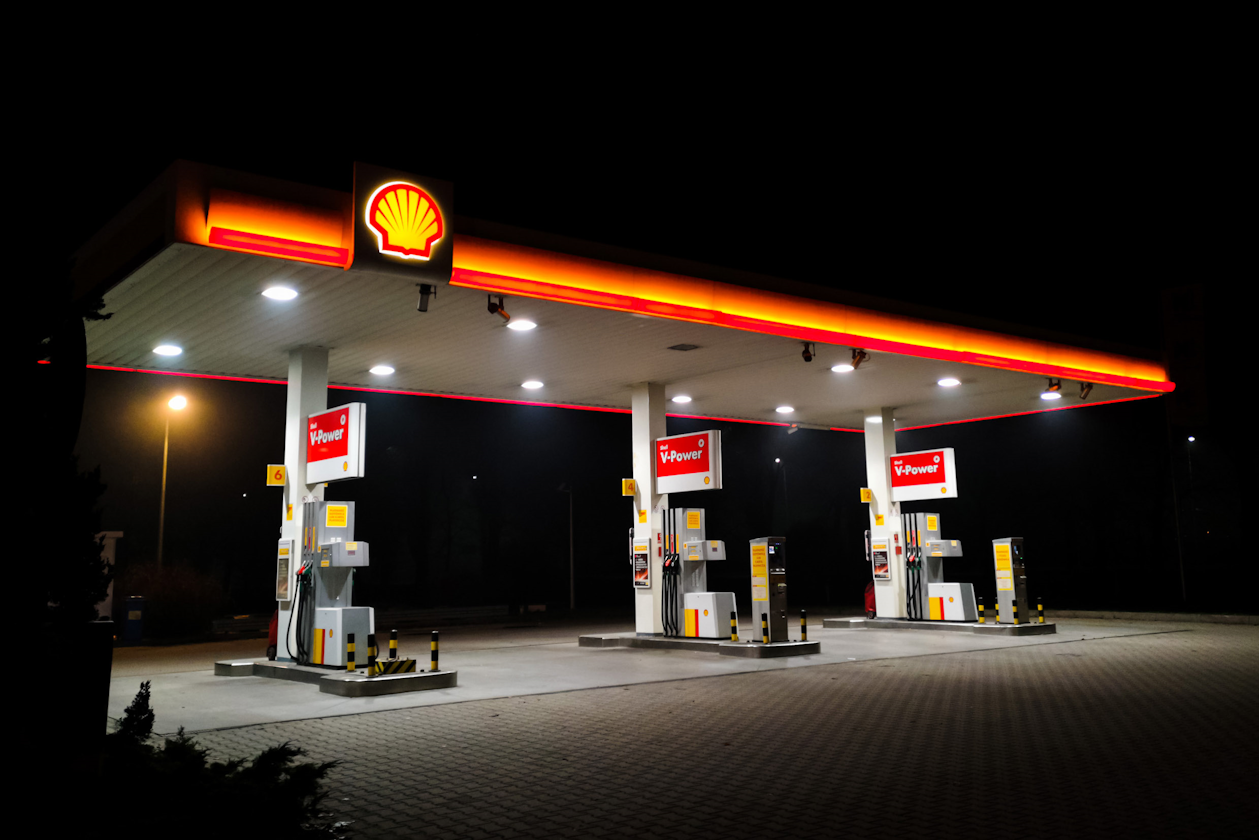Shell’s revenue fell 4.5% in the first quarter to $69.2bn.
Underlying net profit fell by $2.2bn to $5.6bn, with declines led by Chemicals and Products, and Integrated Gas. However, performance in both divisions improved significantly compared to the final quarter of 2024. All divisions performed ahead of market expectations.
Free cash flow fell by $4.5bn to $5.3bn reflecting lower profitability and the adverse impact of receipts and payments timings. Net debt increased from $40.5bn at the same point last year to $41.5bn.
Capital expenditure guidance for 2025 is unchanged at $20bn-$22bn. In the second quarter, both upstream and integrated gas production are set to be impacted planned maintenance. Upstream production guidance is set for the biggest fall (10.5% at the mid-point) but also includes the impact of the disposal of assets in Nigeria.
In line with the previous quarter Shell has declared a dividend of $0.358 per share and a $3.5bn buy back.
The shares were up 3.5% in early trading.
Our view
Shell manged to beat first quarter expectations despite the backdrop of weak oil prices. Shell’s main focus remains very much on fossil fuels. With the company’s production of the black stuff set to remain stable through to 2030, oil prices will remain an unpredictable but crucial element of the group’s fortunes. But given industry production is set to rise in 2025 and 2026, there could be more pressure to come.
However, Shell's not a one-trick pony. It’s the market leader in terms of Liquefied Natural Gas, which may benefit from growth drivers such as the drive for energy independence, rising usage in heavy-duty transport, and waning popularity of coal in power generation.
In distribution, Shell is particularly well placed to provide lower carbon options to motorists. Its global network of 47,000 service stations is the largest of all the oil majors. Its EV charging footprint has been growing rapidly, but the focus is changing to profitability rather than scale.
Strong financials enable it to self-fund the significant organic investment required to replace oil reserves and pursue renewable energy and low-carbon fuel initiatives. Shell continues to tweak its portfolio, recently agreeing to ditch its controversial oil sands interest in favour of an increased stake in a large-scale Carbon Capture and Storage facility. It’s also active in electricity generation, recently adding to its assets with the acquisition of a combined-cycle power plant, which can be an efficient way of providing backup for renewable energy sources if, for example, the wind fails to blow.
Shell invests over $20bn each year across its business, and that’s set to stabilise at between $20-22bn out to 2028. A strong balance sheet and renewed efficiency drive underpins an increase in targeted returns to shareholders of 40-50% of operating cash flow over the cycle. That should allow for annual dividend increases of 4% and continued buybacks of around $3.5bn per quarter as long as oil prices remain above $60 per barrel and here there can be no guarantees.
Shell’s valuation has held up well against a backdrop of falling oil prices, suggesting that investors are supportive of its financial discipline and priorities. The group’s not immune to further volatility in oil prices, but the strong financial position does help provide flexibility.
For now, energy prices and with them, Shell's current focus on shareholder returns are the main drivers of sentiment. Cash flows currently look healthy to us, but investors should be prepared for ups and down along the way.
Environmental, social and governance (ESG) risk
Environmental concerns are the primary driver of ESG risk for oil and gas producers, with carbon emissions and waste disposal being the main issues. Health and safety, community relations and ethical governance are also contributors to ESG risk.
According to Sustainalytics, Shell's management of material ESG issues is strong.
This reflects a change in its business mix over recent years towards lower carbon fuels such as gas and L&G, and the exit from some of its more controversial assets. Despite Shell's numerous environmental and social targets, the company's impact on the environment and society remains relatively high. The decision to hold oil production steady till the end of the decade is likely to be met with some disappointment.
Controversies relating to environmental degradation, bribery and corruption, and community relations continue to play an important role in how Shell is perceived globally, as well as its financial disclosures around its renewables business.
Shell key facts
All ratios are sourced from LSEG Datastream, based on previous day’s closing values. Please remember yields are variable and not a reliable indicator of future income. Keep in mind key figures shouldn’t be looked at on their own – it’s important to understand the big picture.
This article is not advice or a recommendation to buy, sell or hold any investment.No view is given on the present or future value or price of any investment, and investors should form their own view on any proposed investment.This article has not been prepared in accordance with legal requirements designed to promote the independence of investment research and is considered a marketing communication.Non - independent research is not subject to FCA rules prohibiting dealing ahead of research, however HL has put controls in place(including dealing restrictions, physical and information barriers) to manage potential conflicts of interest presented by such dealing.Please see our full non - independent research disclosure for more information.


